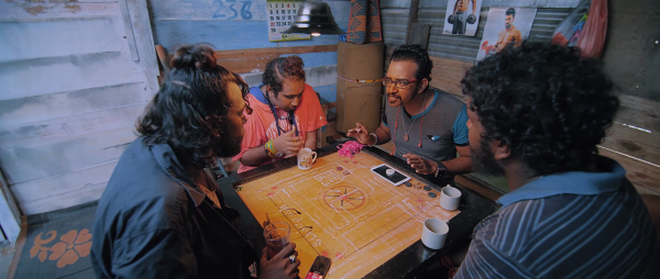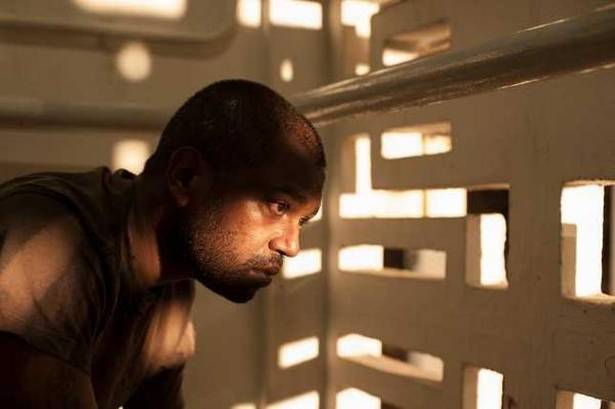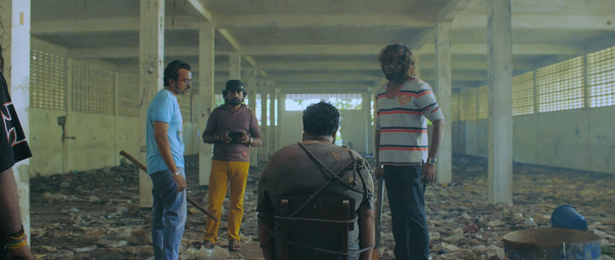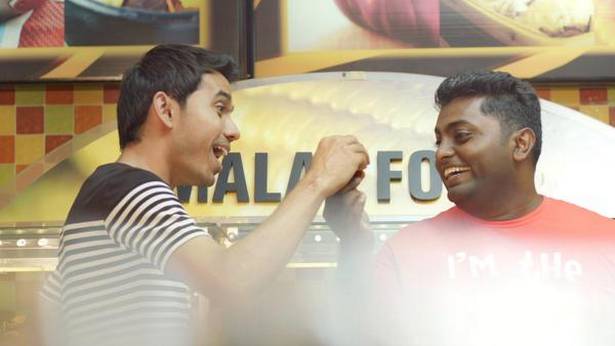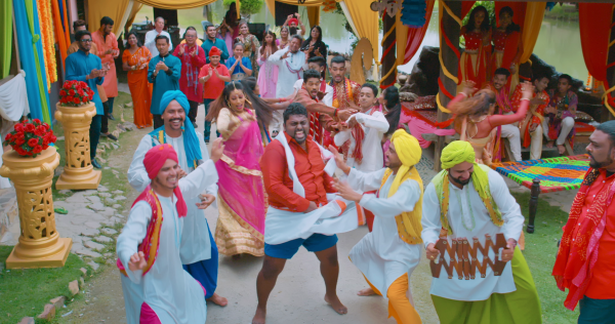They are the biggest South Indian cinematic voice abroad. With at least six movies releasing in the next few months, the Tamil diaspora tells us how they are taking control of their own narrative
When Kabali opened globally in 2016, it outperformed all other South Indian films released till then, raking in $4.05 million in four days in the US alone. Rajinikanth’s larger-than-life role and director Ranjith’s depiction of Malaysia’s Tamil labourers also garnered much attention. But that is not to say everyone was happy. “It was a narrative of South Indian caste-based politics framed within an inaccurate Malaysian context,” explains Kuala Lumpur-based filmmaker Shanjhey Kumar Perumal, sharing that films like Kabali “don’t really represent our experiences”. Tamil-French actor and writer Anthonythasan Jesuthasan (who goes by the nom-de-plume Shoba Sakthi), concurs. “[These films] might have diaspora characters, but they are not diaspora movies,” he says.
Seven months earlier, Perumal had released his Tamil début, Jagat, which also portrayed the lives of Tamil Malaysians — many of whom are descendents of indentured labourers the British had working on rubber plantations. “After independence, we were forced to relocate to urban areas, but we had no understanding of life outside the plantation. As a child, I lived in a squatter’s community for three years, and what I saw there provided the inspiration for Jagat, a coming-of-age story about a boy living in a similar community,” he says. However, securing distribution was a trial, thanks to the competition from Tamil cinema, which is widely distributed in the country.
The new voices
From the shores of Fiji to the frigid suburbs of Toronto, the Tamil diaspora has, for many years, provided a loyal audience base for Kodambakkam’s Tamil cinema. But after generations of life away from India, they are keen to author their own stories. In fact, today, they are the biggest South Indian cinematic voice abroad. A few projects — like Singaporean director K Rajagopal’s 2016 début, A Yellow Bird, and Sri Lankan documentary filmmaker Jude Ratnam’s Demon in Paradise — have even made it to international film festivals like Cannes.
“Many have been living away from their native land for long enough that they have formed entirely new relationships with Tamil culture,” says Vaseeharan Sivalingam, founder of the Norway Tamil Film Festival (NTTF), a nine-year-old outfit. “Since the early 1980s, we have been experiencing a slow emergence of Tamil diaspora cinema, which has quickened in the past four to five years. This year, for the first time at NTFF (which is holding its annual awards ceremony later this month), we have six feature length films from the diaspora, most of them from Malaysia,” he adds. While some filmmakers have superimposed their local flair on the formulaic song, dance and comedy routine, others have eschewed them in favour of their own styles.
A first in 40
Born in Colombo and raised in Batticaloa and Kandy, Sri Lankan filmmaker King Ratnam was keen to showcase the diversity of the island’s Tamil population in his recently-released debut feature, Komaali Kings . “I was also motivated by anger,” he says, “because this is the first fully Tamil feature length film to be released here in more than 40 years. Why has it taken so long for us to represent ourselves as we are — the way we speak, our landscapes, our problems, our civil unrest?”
The film follows Pat, a middle-aged Londoner who returns to Sri Lanka for a wedding, but finds himself at the mercy of his relatives after he maxes out his credit cards. “I chose comedy because producers like it better,” laughs Ratnam, who sourced LKR 30 million for the film. “It’s also an attempt to hold a mirror to our own absurdity and originality. That is why, except for the 5.1 sound mixing that I did in India, everything about the film, technically and otherwise, is Sri Lankan. I did it to prove a point,” he says. He admits, however, there were challenges with distribution. “Because [local Tamil films] are such a new phenomenon in Sri Lanka, we received a lot of step-motherly treatment, but we finally managed to release it in over 50 cinemas here, and also in Toronto.”
Cross-border collabs
Meanwhile in Malaysia, recent films have been featuring collaborations with the Tamil film industry. Music composer Shameshan Mani Maran’s soundtrack for Sughamaai Subbulakshmi (SSL), a Tamil Malaysian film releasing on May 17, includes ‘Aasai Keertanai’, a single sung by Indian playback singer Chinmayi. “The entire process gives me useful insight into how Kollywood functions; we can learn a lot through their technology,” he explains.
Interestingly, SSL — described by director Karthik Shamalan as a “feel good family movie about a protagonist who has to choose between his passion (football) and an obligation” — almost started out as a Malay [language] film. But childhood memories of spending six to seven hours a day at the cinema hall where his father ran a canteen, watching Tamil moviegoers’ reactions, made Shamalan feel confident about entertaining them with his own work. “So I decided to début with Tamil, the language I am most comfortable with,” he says. On the ground, though, he had to overcome a few bumps. Production was stalled for two years due to financial problems, until an ex-boss helped him out.
SSL is premièring internationally at NTFF, where it has already picked up awards (announced last week) for best director and best actor (female). “The film is an accurate portrayal of local life in Malaysia, and comes with the formula of a mainstream Tamil movie and Malaysian flair,” says NTFF’s Sivalingam, pointing to Malay colloquialisms and songs filmed on sandy beaches a la Kollywood’s commercial releases.
Shamalan is also exploring a new market across the ocean in Singapore, where Tamil television has always been more popular than cinema, thanks to state-backed funding. In an effort to encourage film production in the island country, Singaporean TV director SS Vikneshwaran Subramaniam has collaborated with Shamalan on Atcham Thavir. Produced by Malaysian radio station Raaga, the thriller-comedy, set to release on May 31 (in Singapore, Malaysia and Chennai), is being marketed as a cross-border collaboration. “The film — about a group of friends attending a wedding and ending up in hot soup — is our way of telling the world that we are also doing Tamil movies,” shares Shamalan.
Staying true to self
The Atcham Thavir team wants their next project to transcend more borders. “We want to collaborate with the Indian film industry and make more global Tamil films,” says Subramaniam. This is a sentiment that is finding a few echoes among the diaspora. Like Singapore-based director Abbas Akbar, whose childhood friendship with Tamil music director Ghibran paved the way for his recently-released Kollywood debut, Chennai2Singapore . For Akbar, the decision to come to India was a no-brainer. “We’ll have to end up here at some point,” he chuckles. “There’s only one Tamil cinema. Where else would I go?”
That said, the majority of the diaspora film fraternity want to nurture their own industries. Perumal, whose film Jagat was the first Tamil feature to win the Best Malaysian Film award at the 28th Malaysia Film Festival in 2016, has turned down several offers to work in India. “I believe it’s important to establish the voice of the Malaysian Tamil film industry, so we can move away from Kollywood imitations,” he says.
Tamil-Canadian filmmaker Lenin M Sivam, who fled the Sri Lankan civil conflict as a 17-year-old, is of the same bent of mind. In 2009, he used the $10,000 credit limit on his credit card to fund his début feature 1999, a gritty narrative about the gang violence that swept through Toronto’s Tamil communities when he was a teenager. “I wanted to tell my own story — one that I had personal connections to,” Sivam, now 43, says. “I lost a lot of friends because of this violence, and I knew Kollywood would never tell a story like that. To quote the poet R Cheran, ‘Indian Tamil filmmakers making movies about Sri Lankan Tamil problems is like a fish riding a bicycle’,” he adds, smiling. The film, which found success and recovered its costs, premiered at the 2010 Vancouver International Film Festival, where it was named one of the Top 10 Canadian films of the year.
Craft and controversy
In his upcoming feature, Roobha, starring Shoba Sakthi, and releasing in September, Sivam is turning to a more controversial topic — a middle-aged, married Sri Lankan Tamil man who falls in love with a much younger transgender woman. “Even though we see many transgenders in mainstream Tamil movies, it’s almost a taboo topic within the Sri Lankan Tamil diaspora,” he says. The story is penned by Shoba Sakthi, who played the lead role in Jacques Audiard’s Cannes 2015 sweep away, Dheepan .
The search for the titular character was tough. “No male actor from within the Tamil community wanted to kiss a man,” he says. “But when we expanded our search to outside the community, we found Amrit Sandhu, who plays the role [of Roobha] with a lot of depth and precision.” The film is funded in large part by a fellow Sri Lankan Canadian, Warren Sinnathamby, a successful businessman who has little film experience but a keen desire to tell hard-hitting diaspora tales. “The movie took four years of my life, but it was important that I saw it through. It’s a big [Tamil] community out here in North America, and we have a lot of stories to tell, and for as long as we can, we will keep telling those stories,” Sivam concludes.
* The other voices
Kerala-born, New Jersey-raised filmmaker Abi Varghese has played a pivotal role in the rise of Malayalam voices in diaspora cinema. After directing the Fahadh Faasil-starrer Monsoon Mangoes , and the Netflix-distributed sitcom, Brown Nation, he is working with fellow Malayali, actress Melanie Chandran (of Code Black), on a pilot for a female-led television series. “With platforms like YouTube and Netflix, people are creating content at a younger age,” says Varghese, who is gearing up for the release of his sitcom Metropark, starring Ranvir Shorey and Purbi Joshi. “Working in New York, you meet so many talented people that it’s easier than ever to tell your own stories in a truthful manner.” In his future work, he wants to explore stories rooted in Indian culture, and not necessarily diaspora lives.
Acting on a similar impulse, Telugu-American cardiologist Praveena Paruchuri, started working on a script about a Telugu-American medical professional. “I tried to learn more about Telugu art through my family, but it wasn’t vibrant in America, and I found more work in Tamil and Malayalam. Today, it’s encouraging to see Telugu media professionals here, like comedian Hari Kondabolu. When I travelled to Hyderabad, I met [filmmaker Venkatesh Maha], and we collaborated on my maiden production Telugu feature, C/O Kancharapalem. It explores untold local Indian stories, but in my next film, I am keen to portray diaspora lives,” says Paruchuri.
Meanwhile, back home, filmmaker Rajiv Menon, who founded Chennai-based Mindscreen Film Institute, says an increasing number of diaspora Indians are coming down to hone their skills. “We have many from Singapore, France and the US coming to learn filmmaking and acting, and a few have begun working on their projects back home,” he confirms.
* The right note
Malaysian rapper Yogi B believes “there are fewer walls between the diaspora and the mainland” in the world of Tamil film and music. Founder of the now defunct Poetic Ammo, he paved the way for other diaspora rappers like Sri Lankan Dinesh Kanagaratnam (ADK) and fellow Malaysian, Sri Pagenthiran (Sri Rascol), who have lent their lyrics and voices to Tamil cinema, most notably in AR Rahman’s ‘Showkali’ song in the 2016 hit, Achcham Yenbadhu Madamaiyada.
Keen to hone talent, they are now mentoring new musicians. Yogi B’s latest discovery, Indian rap group Madurai Souljours, will release their album next year, while Sri Rascol and ADK, under their label Rap Machines, have signed on the Sri Lankan group Tea Kada Pasanga.
source: http://www.thehindu.com / The Hindu / Home> Entertainment> Movies / by Sindhuri Nandakumar / April 20th,2018
